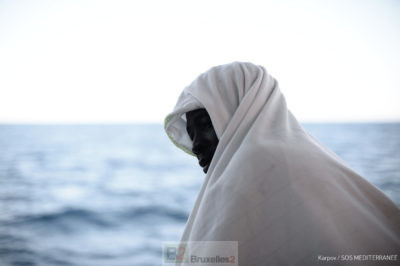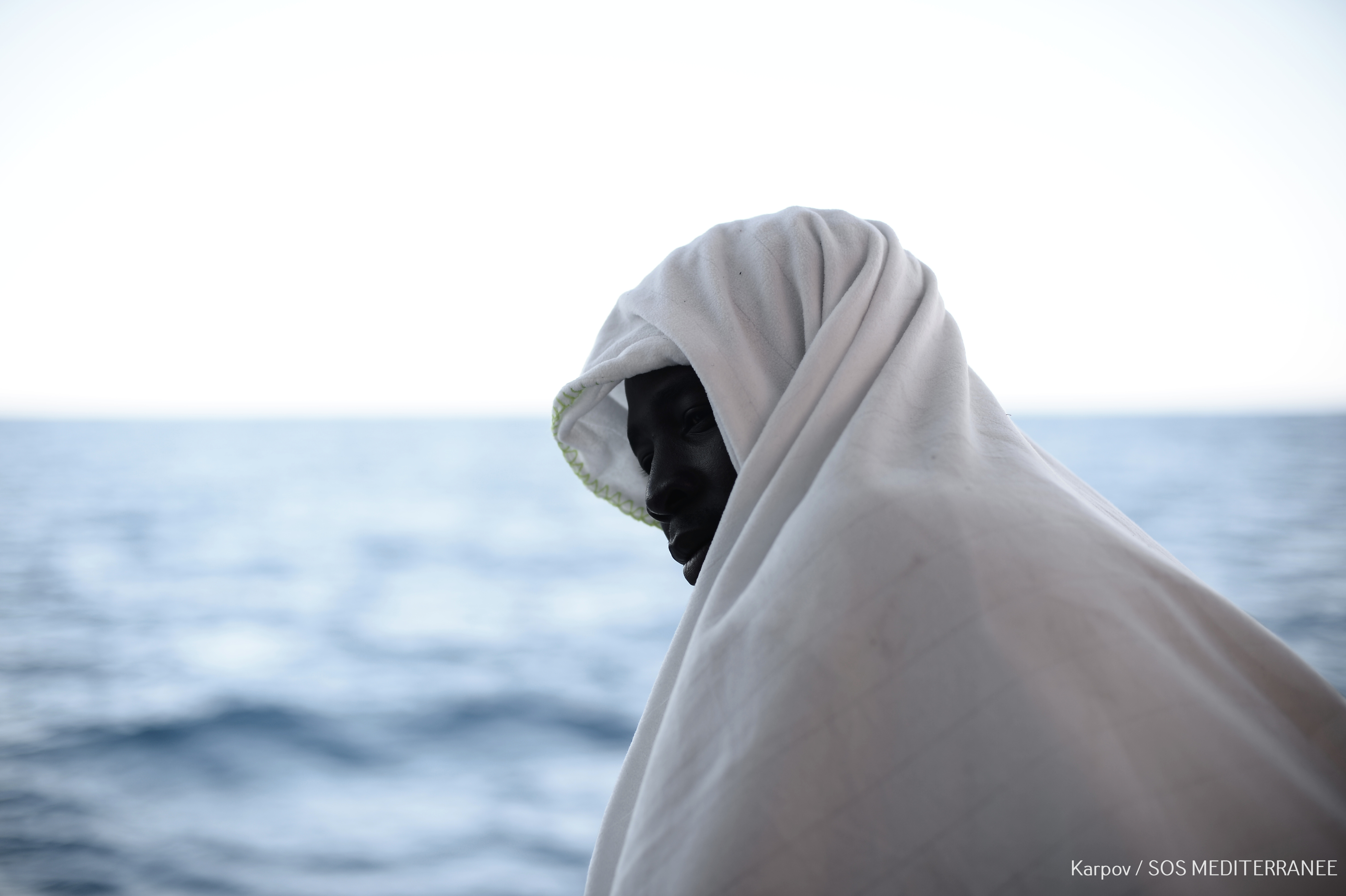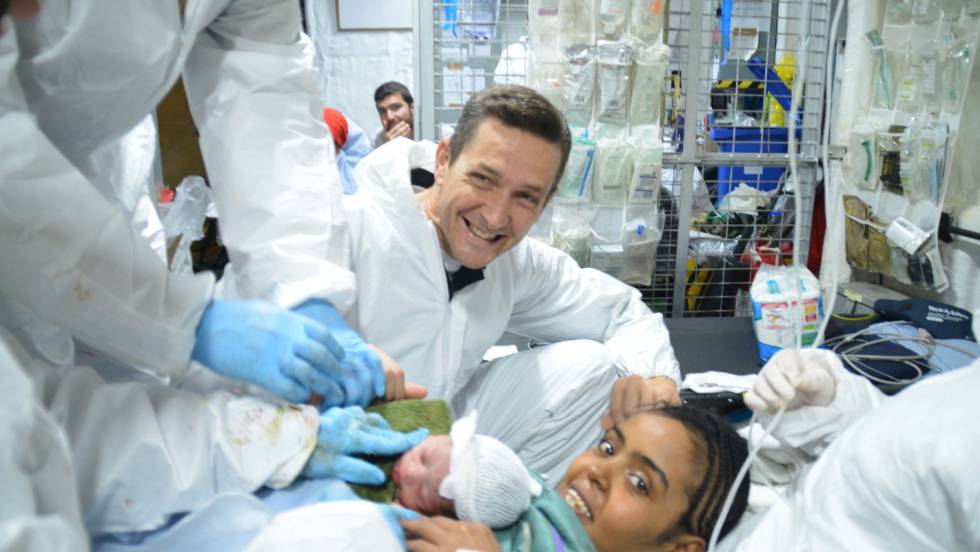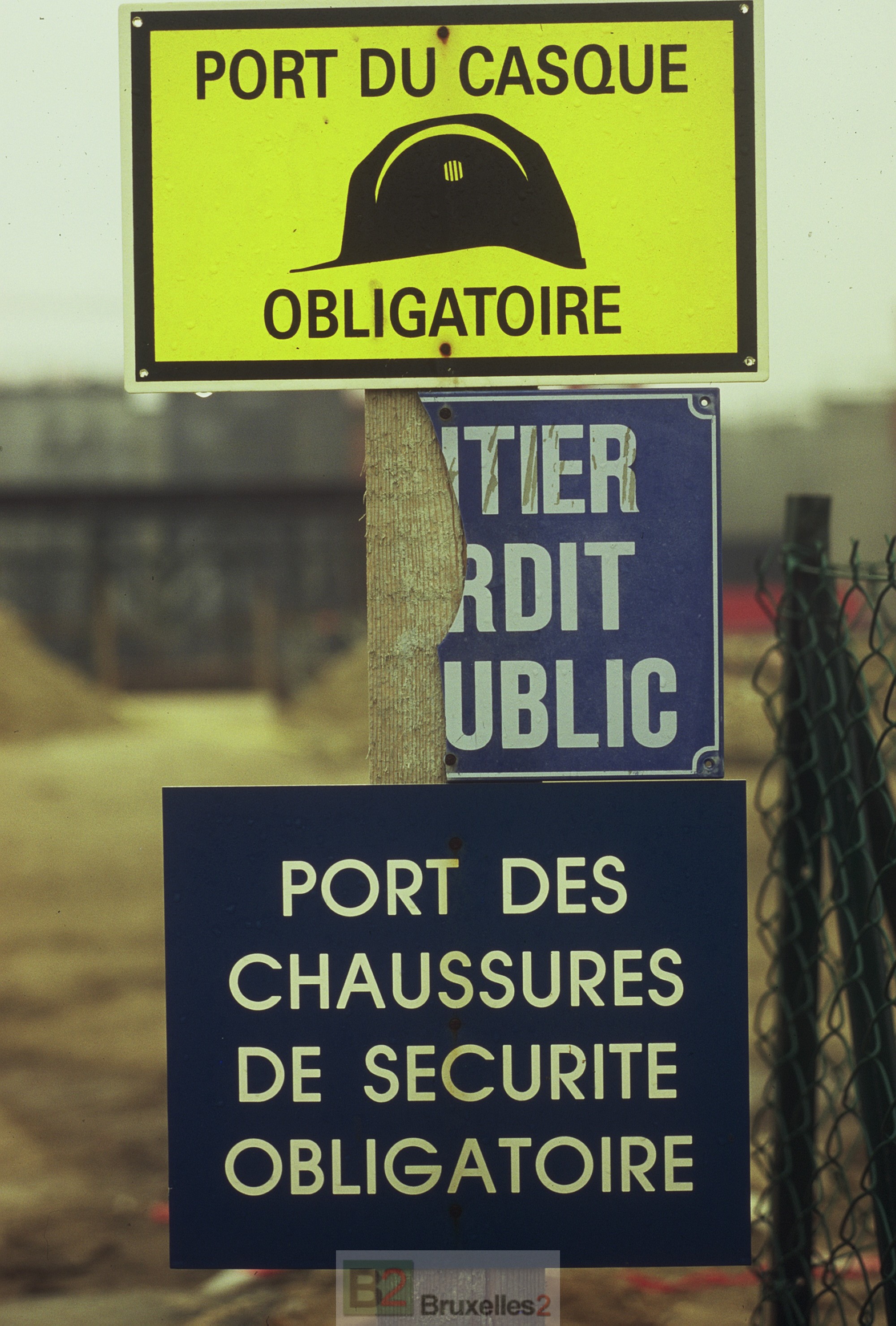Between Paris and Rome, a comedy in five acts against a backdrop of tragedy (V2)
(B2) The Franco-Italian quarrel over the ship theAquarius and its 630 castaways only seems to be an appetizer before the next European summit. The 'French lesson' was poorly perceived. Italian resentment awoke. Heavy and deep, it accuses the Europeans of not providing Italy and Greece, countries of entry of migrants into Europe via the Mediterranean, the desired support. Tale of a five-act tragedy revealing a deeper divorce than meets the eye

First act: honor flouted
It was the French president who was the first to trigger Italian anger. During the Council of Ministers on Tuesday (June 12), Emmanuel Macron castigates "a form of cynicism and a part of irresponsibility on the part of the Italian government in the face of this dramatic humanitarian situation" for not having welcomed theAquarius. This is the end of the sentence that "goes around the web".
The government spokesman, Benjamin Grivaux, drives the point home, in case some have not understood the presidential wrath. Italian cynicism is proven by the facts, he explains. Italy has substituted for the Libyan authorities, since the ship Aquarius was in Libyan waters, without going through with the process" (6'40). “When the boat [Aquarius] is close to your shores, you let it approach and you say it cannot dock” (23'20). Which is " unacceptable is the behavior and the political instrumentalization that has been made by the Italian government (18'30).
? LIVE | Minutes of the #Council of Ministers from Tuesday, June 12, 2018.https://t.co/jaAMcNAt3b
- Benjamin Griveaux (@BGriveaux) June 12, 2018
A very late awakening! Paris has remained silent until now. Generally verbose on his Twitter account, the French president was careful not to make any comments or relayed any information on the wandering of theAquarius. In France, it is the Corsicans, more precisely the Corsican separatist regional elected officials, who propose that the boat can dock on their island. But for the government there is no question of opening the doors toAquarius...
Asked about the proposal to welcome Corsican elected officials, Benjamin Grivaux gives a layer on Italy. " We are dealing with an international subject. And there is no question of creating a precedent that would allow European countries tomorrow to pass their own responsibility on to their European partners.. We must show solidarity between the Member States of the European Union. What the Italian government did not do. (17'20)
In a rather hypocritical way, he recalls the principle of welcome: If any boat had the French coast as its nearest shore, it could dock [since] it is strict compliance with international law and maritime law ».
If a ship had been near the French coast, we would have welcomed it, we would have taken our responsibilities.@FogielMarcO#RTLSevening #RTL
- Benjamin Griveaux (@BGriveaux) June 12, 2018
Second act: resentment explodes
The reaction is dazzling on the Italian side. First, that of the new head of government, Giuseppe Conte, relayed in all the newspapers, including the Evening : " Italy cannot accept hypocritical lessons from countries that have preferred to turn their heads away on immigration ". Then, the next morning, Wednesday (June 13), we learn that this communicated of the Ministry of Foreign Affairs summons the French ambassador in Rome, Christian Masset (1), summoned to the Farnesina, by the Italian Ministry of Foreign Affairs. An approach that is rare to say the least between European states. It is the charge d'affaires of the embassy, Claire Anne Raulin, who will devote herself to accomplishing this process. in the absence of the ambassador ". We can imagine, as in a Lucky Lucke, the minister rubbing the diplomat's ears with soap... The minister, Enzo Moavero Milanesi, qualifies " unacceptable" and " unjustifiable the declarations of Paris.
Rome is threatening to cancel a meeting scheduled for Friday between the two countries to prepare for the European summit at the end of June... which precisely includes migration on the agenda. " If the official apology does not arrive, Prime Minister Conte will do a good thing by not going to France”, warns Matteo Salvini, Minister of the Interior and leader of the Northern League. The agenda of the President of the French Republic still does not indicate a Franco-Italian meeting this Friday, June 15.
The head of the Italian government had already warned that immigration policy would be THE test of European policy: “The first test bed for the new way of dialogue with European partners will be immigration. Flow management has so far been a failure: Europe has allowed selfish closures of many states that have unloaded, first and foremost on our country, the costs and difficulties,” he commented on Tuesday (June 5), during his general policy speech in the Senate, as reported by the Monde.
Third act: French volte-face and Italian boomerang
In his maiden speech to the Italian Senate on Wednesday (13 June) (broadcast on his Facebook), on the actions of the government for the defense of the borders and the blocking of illegal immigration, the Minister of the Interior Matteo Salvini reiterates his expectations vis-à-vis France: The Italians have nothing to learn in terms of solidarity. Our history does not deserve to be approached in these terms by the members of the French government, I hope that they will present their apologies ". He once again scratches the French hypocrisy by listing the returns of migrants to the border of Menton in particular...
The other Italian leader, of the 5 Star Movement, Luigi Di Maio, also recalls on his page Facebook than " France pushes migrants back to Ventimiglia every day », the Franco-Italian border where it reestablished and extended control under cover of risks linked to terrorism.
Fourth act: the third actor returns the ball to the center
In Brussels as in Strasbourg, the European Commission tries to remain zen. For several days, questioned either by the deputies or by the journalists, she tries to circumvent the storm and to avoid being placed in the axis of the exchanges of bitter sweet words.
On Tuesday (June 12), before the European Parliament meeting in plenary in Strasbourg, the Commissioner responsible for Migration, Dimitris Avramopoulos, refuses to blame anyone. " Nobody believes that it is an Italian responsibility, or a Maltese or Spanish responsibility. [...] We cannot continue the political ping-pong of [knowing] who is ultimately responsible for taking responsibility for migration or protecting the external borders. It is a European problem which requires a European response, in all areas, and involving all Member States. He is in favor of a balanced policy: Our citizens want to offer help and protection to those in need - but this hospitality should be shared and should not be abused. And he warns: We will experience great difficulties, because the migration policy calls into question the whole European project " (see it press conference).
We cannot continue the political ping-pong of who is finally responsible for shouldering the responsibility of migration or protecting external borders. Because we all are – the EU as a whole is responsible, with all Member States
Questioned in Strasbourg by a colleague from Radio Radicale on Wednesday (June 13), the Vice-President of the Commission, the Italian Federica Mogherini, particularly embarrassed (2), is content to refer to the words of her colleague Avramopoulos: " European policy must be based on a policy of internal solidarity and external solidarity. Safeguarding the lives of human beings must remain a priority. " (see it video, in Italian, at 30')
The following day, Thursday (June 14), the Commission's chief spokesperson Margaritis Schinas defends the work of its officials. The Commission did the job, he said. " We have put on the table a European migration agenda, a comprehensive, holistic approach that covers all dimensions of the phenomenon. We have moved from managing the migration crisis to a second stage, which is the reorganization of the asylum system and the bases for the protection of the external borders, with more resources. It is now up to member states to decide. It is up to them to assume their responsibilities, particularly during the European summit on June 28 and 29: “ This is where our leaders must consult, talk, agree, because migration issues must be dealt with collectively, together, not against each other. ».
Fifth act: backpedaling
On the eve of a Franco-Italian summit meeting, Paris is backpedaling in its criticisms. A press release of the French presidency indicates laconically, Thursday midday (June 14), that Emmanuel Macron and Giuseppe Conte " spoke on Wednesday evening " (by telephone). They have " referred to the situation of the ship Aquarius » and " were able to discuss their positions ". Without speaking of an excuse, the President of the Republic wishes to " stress[ing] that he did not make any remarks intended to offend Italy and the Italian people ". They agreed that, with a view to the next European Council at the end of June, " new initiatives were needed and should be discussed together ».
Epilogue: reconciliation on the back of Europe
Receiving the President of the Italian Council, Giuseppe Conte, at the Élysée on Friday (June 15), the French President blames Europe: " On these two subjects [migration and the Euro Zone] Europe has lacked efficiency and unity in recent years. [...] They are a test for the Europe in which we believe and a test for our countries [...]. There cannot be a national response. The correct answer is European. But the current European response is not the right one and the current European solidarity, in particular in recent years with regard to Italy, has not been there”. And announce: “We are going to take new initiatives together,” with Germany and Spain. (3)
Immigration and the euro zone: on these two subjects, Europe has lacked efficiency and unity in recent years. It is a test for Europe.
— Emmanuel Macron (@EmmanuelMacron) June 15, 2018
Commentary: Machiavellianism and political cynicism
If we can mock the political recovery of those who propose knowing that their offer will be declined, which the French Prime Minister reproached the Corsican elected officials, we can just as much wonder about the pirouette of France which today says it is ready to help Spain to (eventually) welcome some of the 630 refugees, like Prime Minister Édouard Philippe, questioned at the National Assembly (Tuesday, June 12): “ We are ready to help the Spanish authorities to receive and analyze the situation of those who may wish to benefit from refugee status. ».
#Aquarius : We are ready to help the Spanish authorities to receive and analyze the situation of those who may wish to benefit from refugee status. #QAG pic.twitter.com/HiXFTgugjA
- Edouard Philippe (@EPhilippePM) June 12, 2018
On the Italian side, political recoveries are no more discreet. The Italian Minister of the Interior had better things to do on Tuesday (June 12) than to go to his first meeting of European Ministers of the Interior, in Luxembourg, where precisely it was to be a question of migration...
In this tumult, more discreetly, in Sicily, the port of Catania saw disembark Wednesday (June 13) 900 other migrants rescued from the Diciotti (CP-902), an Italian coast guard ship. It had been announced for several days. Impossible, there, to reject an Italian ship. And this time there is no question of transferring a large part of its occupants to that of an NGO, as was the case for theAquarius (read: theItaly closes its doors).
(Emmanuelle Stroesser, with Aurélie Pugnet st. in Brussels and Nicolas Gros-Verheyde in Strasbourg)
(1) A fine diplomat and connoisseur of European affairs, C. Masset was until 2017 Secretary General of the Ministry of Foreign Affairs (under Laurent Fabius). He was also Deputy Permanent Representative of France to the European Union (2002-2007).
(2) Member of the Democratic Party, appointed under the previous Italian government (Renzi), F. Mogherini, avoids putting herself at odds with the new government which is the antithesis of her opinions. Order had thus been given to the spokesperson to refuse any question not relating to the subject of the day (the presentation of the new European Defense Fund). Then finally F. Mogherini answered, taking advantage of another question.
(3) Download the report details of the joint press conference held by G. Conte and E. Macron (source: Élysée).
Updated on 16.6, paper completed with the result of the Italian summit, the remarks of Commissioners Avramopoulos and Mogherini, and the press briefing of 15.6, as well as certain details on the remarks of E. Macron


